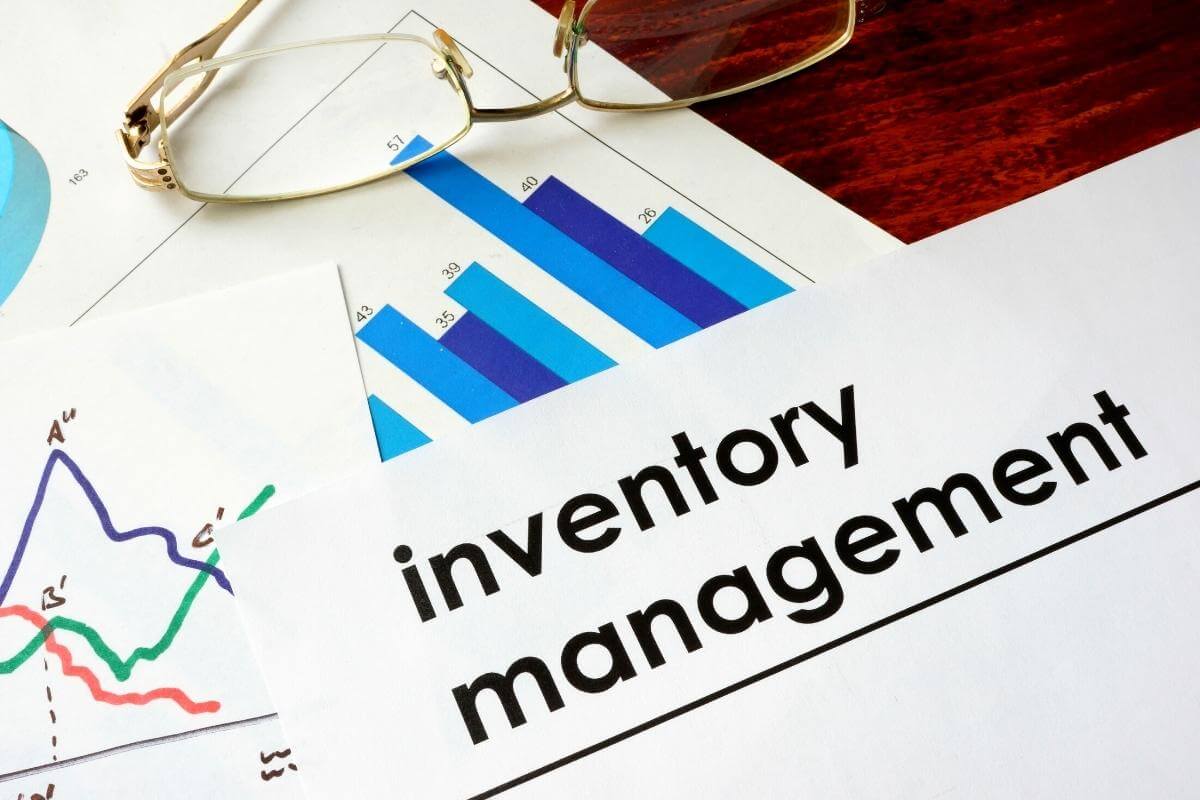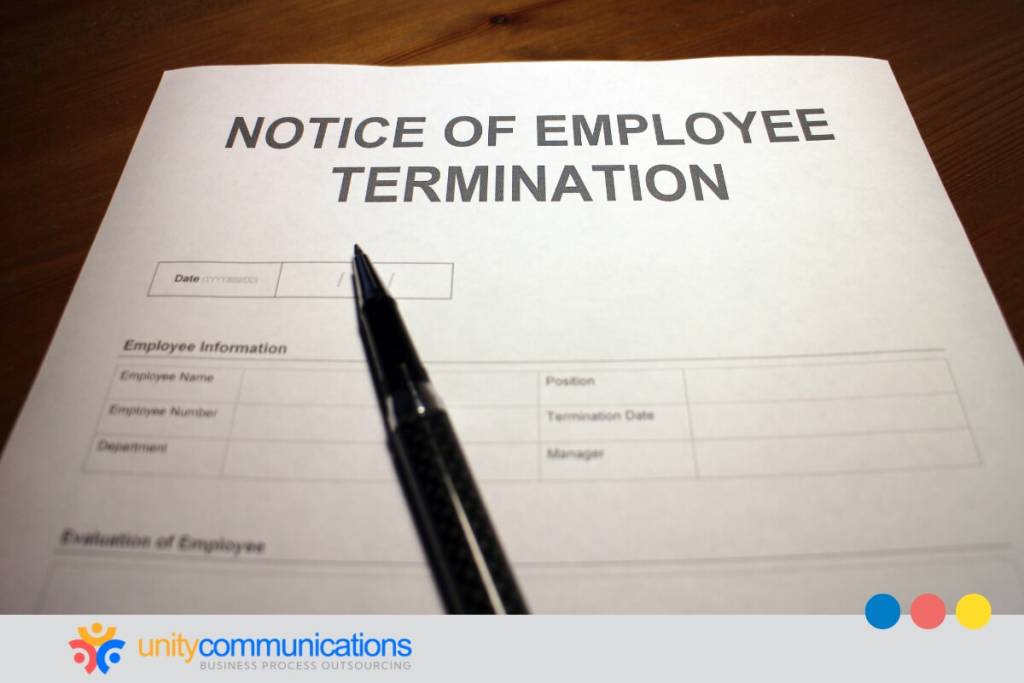Table of Contents
At its most basic level, inventory management refers to the process of monitoring the items that a business has on hand. It includes ordering, replenishing, storing, and forecasting inventory.
Many small businesses mistakenly assume that outsourcing order fulfillment and product storage to a third-party logistics (3PL) provider implies ceding the entire inventory management process. The fact is a 3PL may give invaluable tools and insights that can assist a seller to efficiently and cost-effectively manage their inventory.
A 3PL can help you with inventory management in several ways. We will tackle all of that in this short guide.

What is Inventory Management Outsourcing?
Businesses use the Outsourcing Inventory System to alleviate the strain of producing the components of a particular product in-house. Instead of manufacturing the parts or products in-house, companies opted to outsource the items from outside vendors.
Numerous businesses establish a single supply source for the materials they need. At the same time, other companies assist in developing small- and medium-sized auxiliary units that provide the essential quality parts for finished products.
Inventory management is the collection of procedures and actions between the time you acquire inventory and the time you sell it to a final consumer. Simple inventory management adjustments may significantly influence your bottom line—for better or ill. Inventory management, when done correctly, has the potential to increase revenue. On the other side, missed chances might result in income loss.
As a retailer, you want to ensure that your products are accessible when your consumers need them, without running out of inventory and without having an excess of anything. When juggling the demands of operating a growing business, inventory management can be time-consuming, costly, and resource-intensive. Effective execution is crucial to your business’s profitability and development. However, today’s purchasing climate is everything but forgiving.
According to new research by the National Retail Federation, consumers increasingly demand free shipping and in-store pickup for their online purchases. Retailers now understand the need to adapt to new and continuously changing order fulfillment strategies to secure revenue. So how can you effectively adjust to changing client needs while still managing your inventory efficiently and profitably? Inventory management and order fulfillment outsourcing may be a solution for you.
Learn more: What’s the Difference Between Front Office and Back Office Outsourcing Services?
Why Consider Inventory Management Outsourcing?
According to Fortunly, businesses spent $75.2 billion on security outsourcing globally last year.
Businesses often outsource to reduce expenses, increase efficiency, and accelerate their operations. Companies that choose to outsource depend on the knowledge of third-party suppliers to achieve these ends. The premise is that since the third-party outsourcing firm concentrates only on that activity, they can do more efficiently, effectively, and affordably than hiring an in-house team.
Given these benefits, firms often outsource supporting tasks inside their organizations to concentrate their resources more narrowly on their core strengths, thereby gaining a competitive edge in the market.
Businesses choose to outsource for multiple reasons.
They outsource, for example, because they are unable to acquire full-time staff with the particular skills and expertise required to do certain activities in-house.
Occasionally, businesses outsource to delegate compliance with regulatory requirements or duties to a third-party outsourcing provider.
Further reading: Back Office Outsourcing: A Quick Guide
How Amazon Outsourced Its Inventory Management?
Amazon’s distribution strategy is based on several operational models to lower costs, accelerate the Amazon supply chain, and increase efficiency.
Lean Inventory Management
Lean inventory management is an operational philosophy that emphasizes maintaining a minimal amount of inventory to meet demand. The key to this approach is anticipating and controlling inventory levels since freezing too much stock may be detrimental to your business’s economics.
Amazon employs advanced artificial intelligence-based algorithms to optimize its supply chain management. Amazon AWS utilizes innovative computer-based Big Data processing technologies, including artificial intelligence solutions, blockchain technology, and cloud computing.
Inventory Controlled by Vendors
Vendor Managed Inventory (VMI) is an inventory management technique in which suppliers replenish inventory when it is time to reorder. Third-party sellers retain control over their items’ supply inside a retailer’s stock under this strategy. They ship their goods to Amazon’s fulfillment centers, and Amazon handles the fulfillment.
Digitizing the Warehouse and Third-Party Logistics
Amazon’s massive warehouse operations need to improve and simplify all their procedures. Amazon automates and digitizes its warehouses to effectively handle distribution and fulfillment operations by relying heavily on mobile barcode scanners and wearables. Mobile devices provide a continuous cycle of order processing, item selecting, and delivery, as well as real-time insight into the status and quantities of inventory. Barcoding on mobile devices improves visibility and accuracy.
Real-time connectivity with a centralized and multi-layer backend system, such as an ERP or warehouse management system, maintains data accuracy across geographically dispersed sites. Real-time mobile inventory management enables the integration of numerous sites into a single supply chain.
Amazon’s supply chain is based on complex outsourced inventory management. If a customer places an order for a particular product not available on Amazon inventory, the product will be sourced directly to a distributor. This way,
Inventory management outsourcing enables Amazon to reduce redundant inventory, concentrate on essential activities, lessens inventory turnover while still keeping their customer service standards.
What Is Insourcing and Outsourcing in a Supply Chain?
Outsourcing is the process of contracting with a third-party service provider to fulfill specific activities. On the other side, insourcing assigns a business process or project to a person or department within the organization capable of handling that particular task. The critical contrast between outsourcing and insourcing is whether the job is delegated inside or outside the organization.
Outsourcing
Outsourcing uses an external organization’s established staff and resources to complete tasks, provide services and produce goods. Typically, outsourcing work to another organization saves money on expenditures. Telecommunications, travel, transportation, media, and retail industries often depend on outsourcing to perform significant projects or activities.
Businesses may practice outsourcing to refocus their efforts on their core competencies. That is, outsourcing non-core operations may result in improved productivity and efficiency. Outsourcing can be engaged for a broad range of functions, from customer service to manufacturing and technology and back-office operations.
Insourcing
Instead of employing a third-party company, insourcing gives a project to a person or department within the organization. It uses the organization’s internal resources to carry out activities or accomplish a goal. For example, a business may already have well-developed technical support teams handling mobile product support. If the company launch new products for other devices, then support task can be assigned to the same team instead of looking for an outside service provider.
Additionally, insourcing often brings new activities and procedures in-house. Often, insourcing may be a costly business model because it requires the development of new strategies and finding additional labor resources.
The Bottom Line
Inventory management outsourcing and order fulfillment services often entail obtaining assistance needed to effectively manage inventory, a hands-on task for any e-commerce company owner. A reputable third-party logistics provider should not be considered an add-on expense for a few automated logistics services and warehousing charges.
The ideal third-party logistics provider is someone that understands the in and out of the industry and can predict the needs of your business. A trusted outsourcing provider can assist your team in developing an effective inventory process, establish a workflow to avoid stockouts, backorders, and needless extra storage expenses caused by mismanaged stock levels. Finally, your 3PL should be a partner in your business’s success.
Although the initial purpose of outsourcing is a cost-cutting measure, it is gradually becoming a strategic tool for businesses, offering huge benefits if done correctly.
Leading businesses recognize that outsourcing certain functions can help them gain a competitive edge by gaining access to expertise that they lack in-house, enabling them to deliver products or services more quickly; or reallocating resources to the most critical business areas.






